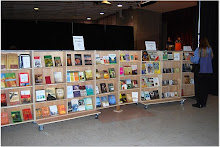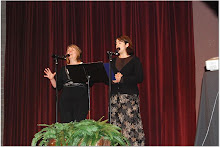“And one of the scribes came up and heard them disputing with one another, and seeing that he answered them well, asked him, "Which commandment is the most important of all?" 29 Jesus answered, "The most important is, 'Hear, O Israel: The Lord our God, the Lord is one. 30 And you shall love the Lord your God with all your heart and with all your soul and with all your mind and with all your strength.' 31 The second is this: 'You shall love your neighbor as yourself.' There is no other commandment greater than these." 32 And the scribe said to him, "You are right, Teacher. You have truly said that he is one, and there is no other besides him. 33 And to love him with all the heart and with all the understanding and with all the strength, and to love one's neighbor as oneself, is much more than all whole burnt offerings and sacrifices." 34 And when Jesus saw that he answered wisely, he said to him, "You are not far from the kingdom of God." And after that no one dared to ask him any more questions.”
-Mark 12:28-34
“Even if fish can think, they likely give little thought to water in which they swim. Similarly, culture, is the taken-for-granted air of ideas, habits, hopes, and fears that we breathe every day. Unlike fish, however, we human being can and should think about it, and we can and should do something about it.”
- Richard John Neuhaus, Introduction to Culture Matters, p. 7
“The Scriptures are many things to the Christian, but central to their purpose is instruction. There is no passage in Scripture that cannot teach us something about God and his relationship to us. We must approach the Scriptures as students, particularly when we begin to think critically about our own worldview. ‘Everything that was written in the past was written to teach us,’ says Paul of the Old Testament Scriptures (Romans 15:4), and the same applies to the New Testament. That is why the concept of ‘sound doctrine’ is so central to the apostolic witness – not doctrine in the sense of academic theology, but as practical instruction in the life and death realities in our walk in the covenant with God.”
- Albert Wolters, Creation Regained, p. 8
“So where are we called to create culture? At the intersection of grace and cross. Where do we find our work and play bearing awe-inspiring fruit – and at the same time find ourselves able to identify with Christ on the cross? That intersection is where we are called to dig into the dirt, cultivate and create.”
- Andy Crouch, Culture Making, p. 262
“Experience confirms the witness of Scripture: we cannot long sin against God without sinning against God’s image bearers, and if in measure we do love God, we will love those who bear his image.”
- D.A. Carson, Christ and Culture Revisited, p. 47
-Mark 12:28-34
“Even if fish can think, they likely give little thought to water in which they swim. Similarly, culture, is the taken-for-granted air of ideas, habits, hopes, and fears that we breathe every day. Unlike fish, however, we human being can and should think about it, and we can and should do something about it.”
- Richard John Neuhaus, Introduction to Culture Matters, p. 7
“The Scriptures are many things to the Christian, but central to their purpose is instruction. There is no passage in Scripture that cannot teach us something about God and his relationship to us. We must approach the Scriptures as students, particularly when we begin to think critically about our own worldview. ‘Everything that was written in the past was written to teach us,’ says Paul of the Old Testament Scriptures (Romans 15:4), and the same applies to the New Testament. That is why the concept of ‘sound doctrine’ is so central to the apostolic witness – not doctrine in the sense of academic theology, but as practical instruction in the life and death realities in our walk in the covenant with God.”
- Albert Wolters, Creation Regained, p. 8
“So where are we called to create culture? At the intersection of grace and cross. Where do we find our work and play bearing awe-inspiring fruit – and at the same time find ourselves able to identify with Christ on the cross? That intersection is where we are called to dig into the dirt, cultivate and create.”
- Andy Crouch, Culture Making, p. 262
“Experience confirms the witness of Scripture: we cannot long sin against God without sinning against God’s image bearers, and if in measure we do love God, we will love those who bear his image.”
- D.A. Carson, Christ and Culture Revisited, p. 47
Dear Christ Our Redeemer Family and Friends,
In a world that seems to have gone topsy-turvy Christians are the only ones with a sure hope, unshakeable future, and the promise of God’s presence. The Sovereign God has deigned the end from the beginning and all things are under His unfailing watchcare. There are no surprises to Him, nor is there anything beyond His Sovereign control. Therefore, the Christian can interact in a hostile, unpredictable and anti-God culture in ways that demonstrate love for God Himself and love to his neighbor. God has placed the Christian in an unfriendly garden and given both a command and promise to be fruitful and multiply. Be assured, in our everyday lives God desires that we bring grace and the cross to bear in how we relate to Him and to one another. In the words of the hymnwriter, “This is my Father’s world” and in spite of opposition and difficulty He has placed us here to bear much fruit. The question we must ask is not if, but how we do it.
I’m thinking about loving God by loving my neighbors today. This is the intersection of grace and cross.
Dan





























No comments:
Post a Comment